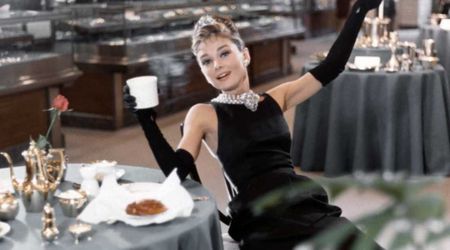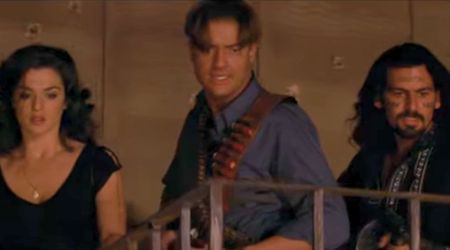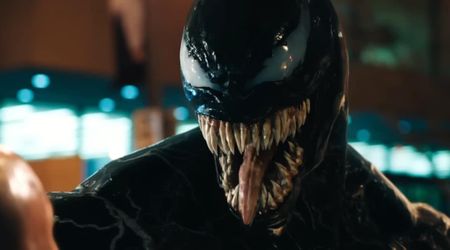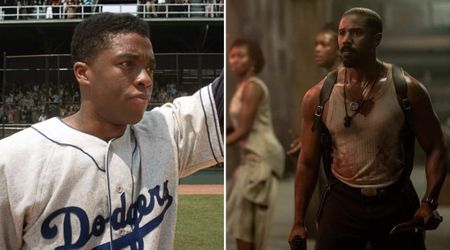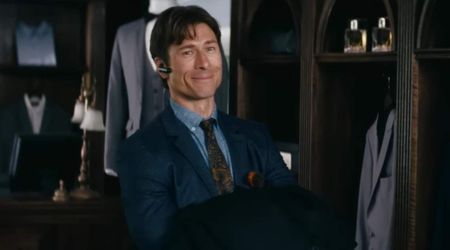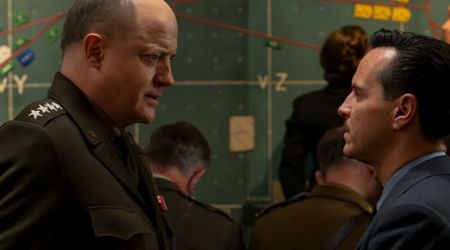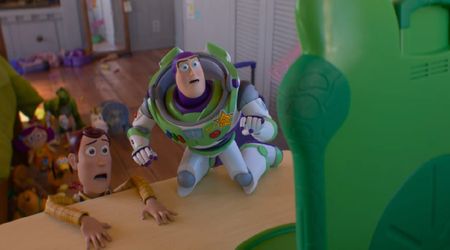‘The Trial of the Chicago 7’: Was Conspiracy Office's Bernardine real? Here's who you shouldn't confuse her with

The phone rings. A female voice answers: “Conspiracy office, can you hold on?” That's our first introduction to Bernardine in Aaron Sorkin's ‘The Trial of the Chicago 7’. The telephone keeps ringing and she repeats those lines again and again.
Doors fling open and close as the dim-lit room filled with graffiti-laden walls is bustling with people walking and talking all around. A cut stone townhouse in Paterson’s Eastside Park Historic District served as the home for the defendants’ headquarters, ironically dubbed The Conspiracy Office. Valentino and his team — who designed the space — said: “The Conspiracy Office almost becomes this amalgamation of all the defendants,” and hinted on how they leaned into subtlety rather than the psychedelia that many associate with the era. Sassy and snarky, actress Alice Kremelberg breathes life into the character of a telephone operator-cum-assistant.
The defense attorney William Kunstler (Mark Rylance) strides towards her and remarks, “Maybe you don't want to call it, uh, Conspiracy Office.” She retorts back: “They understand irony and appreciate the humor.” When Kunstler says he wouldn't count on it, Bernardine comments, “Most people are smart, Bill.” Kunstler then leaves with a lesson to remember: “If you believe that, you're gonna get your heart broken every day of your life.”
The first question that crosses minds is: Was Bernardine's character based on a real woman like her co-actors?
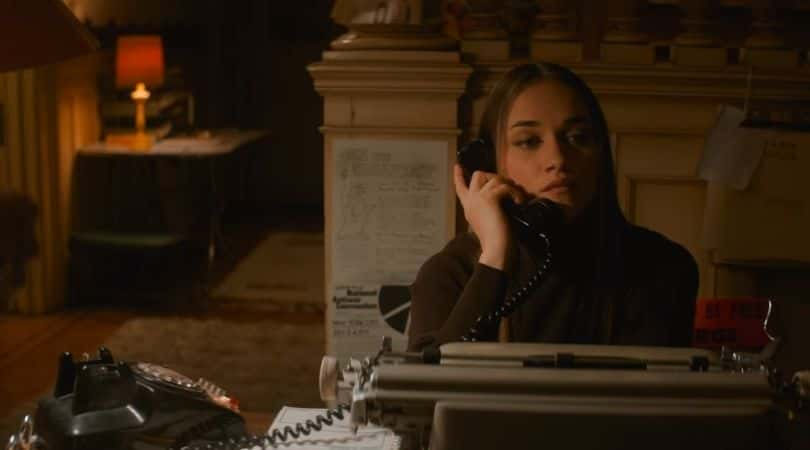
Was Bernardine based on a real woman?
As the trial proceeds, Bobby Seale — the eighth defendant's case — gets declared a mistrial after he is gagged and bound in the courtroom. In the very next scene, the focus shifts to Bernardine as she gets an obnoxious call. Giving a tight slap with her words, she answers a crass caller, “No sir, I am a White woman.” She then continues, “Yeah, I've slept with several in my life so far, and on balance, I'd have to say yes it is better. I think that's a big part of what's got you worked up. It's not so much that it's bigger. It's better.”
Leonard Weinglass (Ben Shenkman), standing there beside her, tells her to hang up the phone. When he asks if it was “a parting gift for Bobby,” she boldly says, “No, that was just for me.”
Even with limited time on screen, Alice steals the spotlight. And it makes one wonder if her character is based on a real-life person. Officially, no details have been slipped out and with no trace of such a person in the past, it seems to be fictionalized. The makers certainly did a good job of adding female characters to the rousing plot — just like Daphne O'Connor — even though the women might not have been in the lead.
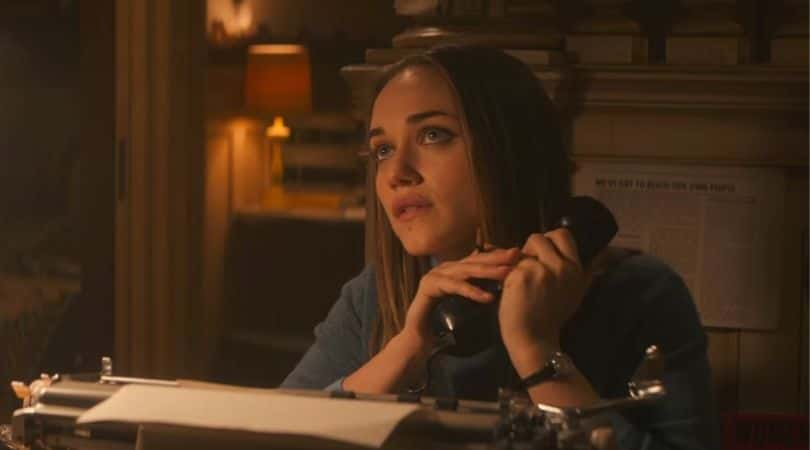
Who was Bernardine Dohrn?
Call it coincidence or just sheer luck, but there was a woman by the name of Bernardine in those times. A retired law professor and former leader of the radical Weather Underground, Bernardine Rae Dohrn became one of the leaders of the Revolutionary Youth Movement (RYM), a radical wing of Students for a Democratic Society (SDS), in the late 1960s. While the name may be similar, let's make it clear — she was not the real-life woman behind the character Bernardine in Aaron Sorkin's movie.
In 1969 during the anti-Vietnam war protests, Dohrn teamed up with ten other SDS members to issue a 16,000-word manifesto titled “You Don't Need a Weatherman to Know Which Way the Wind Blows,” in New Left Notes. The title was inspired by Bob Dylan's song, ‘Subterranean Homesick Blues’. Dohrn said: “The best thing that we can be doing for ourselves, as well as for the [Black] Panthers and the revolutionary black liberation struggle, is to build a f**king white revolutionary movement.”
Did you know the leader of the Weather Underground was also on the FBI's 10 Most Wanted list for several years? She escaped and remained a fugitive for a long time even as she was struck off the list. When she came out of hiding in 1980, Dohrn pleaded guilty to misdemeanor charges of aggravated battery and bail jumping.
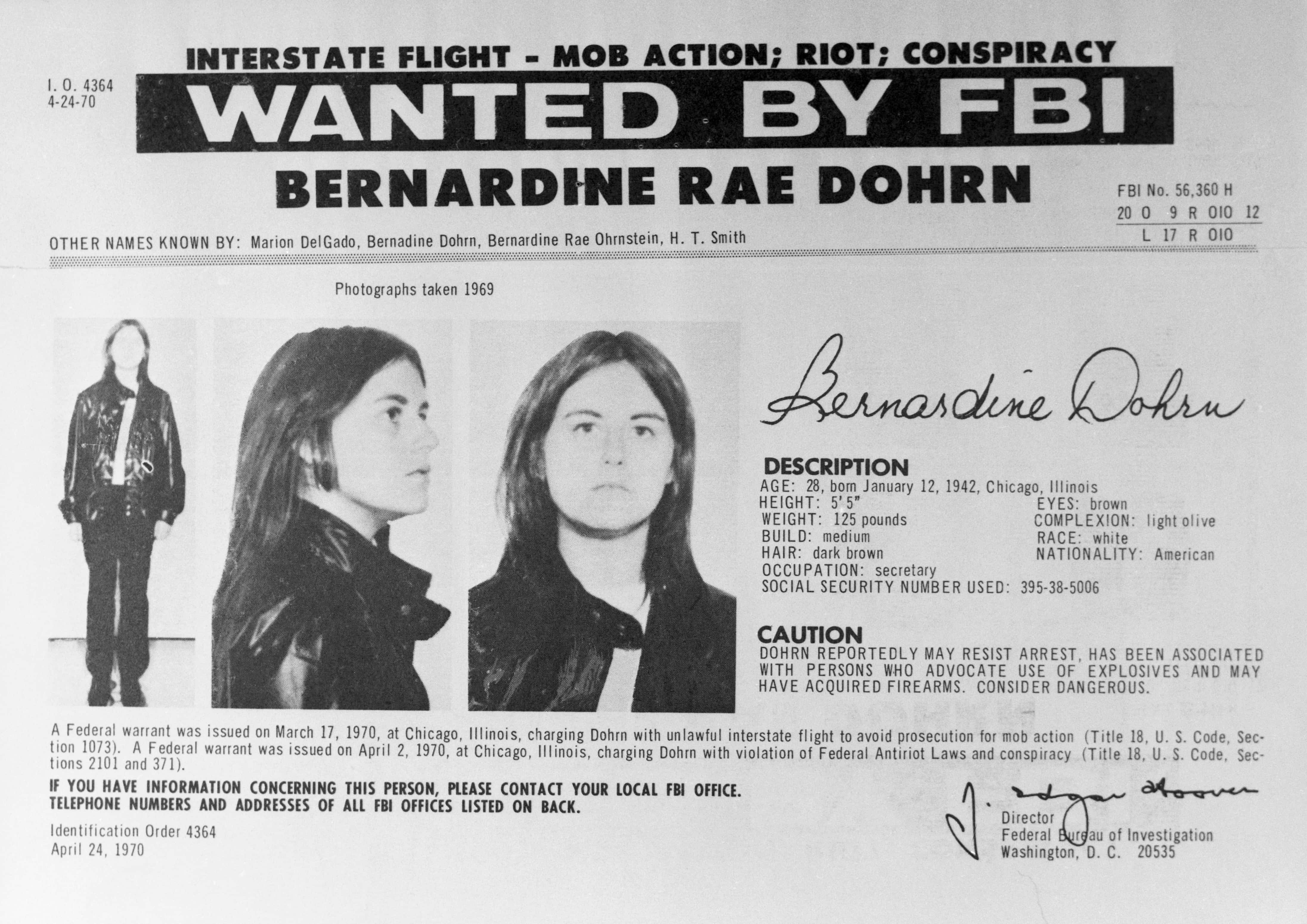
However, her life was in stark contrast to the character in the film. So, that makes it quite clear that Bernardine was a fictionalized character — but a great one, indeed!
'The Trial of the Chicago 7' will start streaming on Netflix October 16, 2020.

